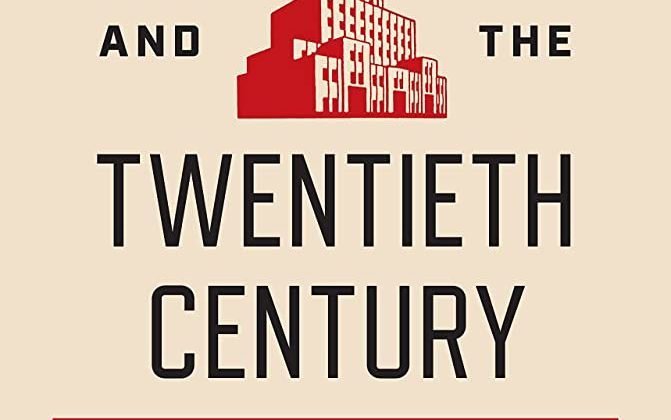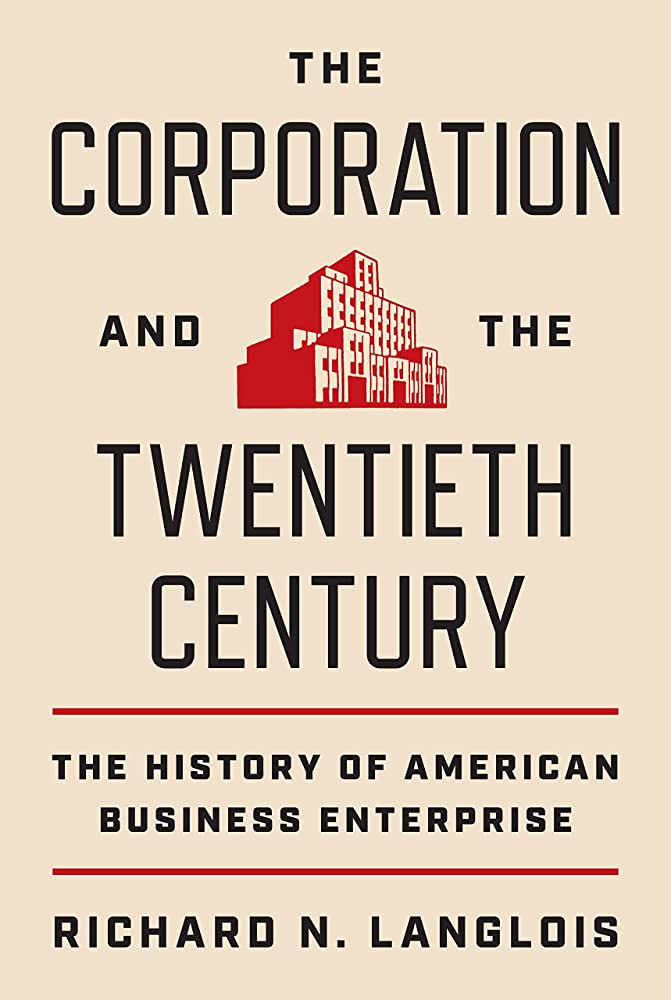

Richard N. Langlois is Professor of Economics at the University of Connecticut. This interview is based on his new book, The Corporation and the Twentieth Century: The History of American Business Enterprise (Princeton University Press, 2023).
JF: What led you to write The Corporation and the Twentieth Century?
RL: My research over the last 25 years or so led me to conclude that the traditional narrative about the rise and decline of the large managerial corporation in the United States needed serious revision. What was called for was a comprehensive new treatment of the history of that institution, one grounded in my own work in the economics of organization but taking a larger view to encompass economic, intellectual, and political history.
JF: In 2 sentences, what is the argument of The Corporation and the Twentieth Century?
RL: Since the Progressive era, the large managerial corporation has been understood as a manifestation of the superiority of rational, scientific management, what Alfred Chandler called the Visible Hand. The Corporation and the Twentieth Century deconstructs the Progressive narrative, arguing that the corporation is an institutional adaptation that thrived in the middle of the century less because of its own internal virtues than because alternative decentralized institutions of governance were hampered or destroyed by depression, war, and strong government policies toward industry.
JF: Why do we need to read The Corporation and the Twentieth Century?
RL: Because the corporation is a crucial and widely misunderstood institution in American society. But even those interested in American history more generally need to read it because the book is also at base an economic history of the twentieth century (with a little bit of the late nineteenth and the early twenty-first thrown in), one that weaves together the work of serious economic historians to construct a revisionist account that will challenge many people’s understandings of the century.
JF: Why and when did you become an American historian?
RL: It is only in the last few years, as the book neared completion, that I have felt comfortable describing myself as an economic historian (or sometimes a business historian). I have taught economic history for many years, but always European, not American. I have no formal training in history (save one undergraduate course in Medieval history a half century ago). I long thought of myself as a theorist of organizations and institutions. But early on I saw that I needed to investigate case studies in order to illustrate and deepen my ideas about organizations. This led to a string of papers on the history of American high-tech industries, mostly in electronics. Only as I began to situate all that in a larger historical narrative did I really become a historian.
JF: What is your next project?
RL: I am about halfway through a small book (50,000 words) essentially writing up a course on the economics of organization I have long taught. A largely non-technical introduction, it should not only be useful to specialists but also accessible to good undergrads and graduate students in disciplines outside of economics. After that, who knows? Plenty of ideas, but I’ll have to think about whether I have another big project in me.
JF: Thanks, Richard!